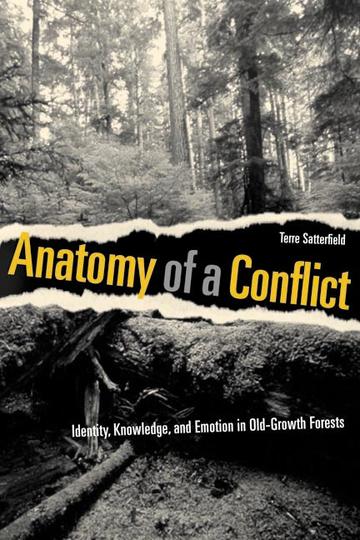About BC Books Online
BC Books Online was created for anyone interested in BC-published books, and with librarians especially in mind. We'd like to make it easy for library staff to learn about books from BC publishers - both new releases and backlist titles - so you can inform your patrons and keep your collections up to date.
Our site features print books and ebooks - both new releases and backlist titles - all of which are available to order through regular trade channels. Browse our subject categories to find books of interest or create and export lists by category to cross-reference with your library's current collection.
A quick tip: When reviewing the "Browse by Category" listings, please note that these are based on standardized BISAC Subject Codes supplied by the books' publishers. You will find additional selections, grouped by theme or region, in our "BC Reading Lists."
Anatomy of a Conflict explores the cultural aspects of the fierce dispute between activist loggers and environmentalists over the fate of Oregon’s temperate rain forest. Centred on the practice of old-growth logging and the survival of the northern spotted owl, the conflict has lead to the burning down of ranger stations, the spiking of trees, logging truck blockades, and countless demonstrations and arrests. Satterfield shows how the debate about the forest is, at its core, a debate about the cultural make-up of the Pacific Northwest. To talk about forests is to talk about culture, whether the discussion is about scientific explanations of conifer forests, activists’ grassroots status and their emotional attachment to land, or the implications of past people’s land use for future forest management. An engaging ethnographic study, this book emphasizes the historical roots and contemporary emergence of identity movements as a means for challenging cultural patterns. It makes a significant contribution to culture- and identity-driven theories of human action in the context of social movements and environmental studies.
Terre Satterfield is a research scientist with Decision Research in Eugene, Oregon, and Assistant Professor of Culture, Risk, and the Environment at the University of British Columbia's Sustainable Development Research Institute, and at the Institute for Resources and the Environment.
- Winner, K.D. Srivastava Award, UBC Press
An excellent piece of ethnographic analysis of value not only to scholars interested in environmental issues but to those working in the wider field of human ecology and in related areas of identity, political process, emotion, science, and the general construction of cultural conventions.
This book makes a significant contribution to our understanding of environmental controversies. While economic and political dimensions of forest controversies have been closely studied, the anthropological perspective provided by this book is novel, and important.
This is an excellent work, and is essential reading for those engaged in the sociology of natural resources (a term contested by some), and perhaps for environmental sociologists more broadly. As someone who has a cross-appointment in a Faculty of Forestry, I think this should be required reading for students of forestry. However, I think it should also have broader appeal beyond the academy, to those citizens who are interested in the conflict over old-growth forests.



